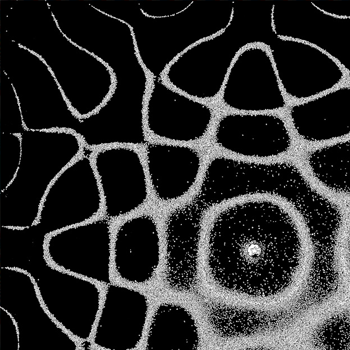How do dipole interactions differ from hydrogen bonds?
1 Answer
There's Dipole in Hydrogen bonding but no Hydrogen bonding in Dipole.
Explanation:
Dipole interactions can refer to all molecular compounds in which the difference in electronegativities of the elements creates "dipoles" on the molecule, therefore making it polar. Take HBr for example, Bromine has an electronegativity of 3.0, and hydrogen has one of 2.2. This means that in the molecule, Bromine attracts the bonding electron more strongly than the Hydrogen does, so the Bromine end is now very slightly charged negatively, giving the molecule dipole-dipole bonds
Hydrogen bonding is similar to Dipole interactions in that there a "poles" in the molecule, BUT it only involves Hydrogen bonded to any three of these non-metallic elements, Nitrogen, Oxygen, and Fluorine. These combinations create a molecule with a difference in electronegativities significantly higher than those of any other compounds. This results in any H-N, H-O, H-F compounds possessing higher melting points/boiling points when compared to other molecular compounds.
You'll also notice Chlorine is excluded from forming Hydrogen bonds, despite its high electronegativity, and this is due to the fact that the atom of Chlorine is very large, therefore not strong enough to form any hydrogen bonds.

